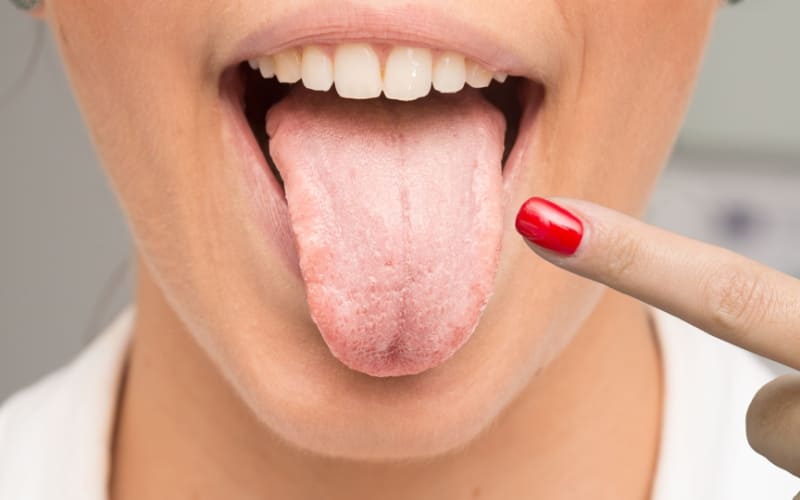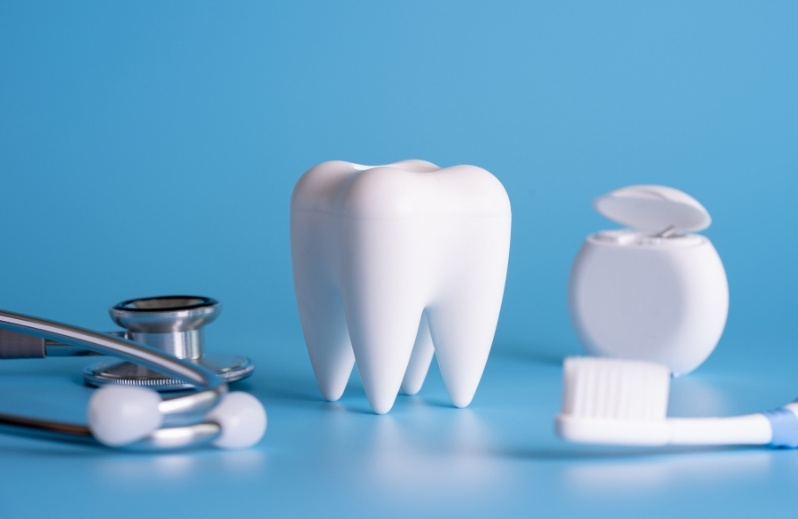Call: (810) 674-3060
Can Your Tongue Indicate Health Problems?

The tongue plays a crucial role in assessing one’s health, reflecting both physical and emotional well-being. In traditional medicine, particularly in systems like Traditional Chinese Medicine (TCM) and Ayurveda, the tongue serves as a diagnostic tool. Through observation of its color, coating, shape, and moisture, practitioners can glean insights into various health issues, from digestive disorders to emotional imbalances. This practice, known as tongue diagnosis, underscores the interconnectedness of bodily systems and highlights how subtle changes in the tongue can indicate health problems elsewhere.
Anatomy of the Tongue
The tongue, a muscular organ, is vital for speech, swallowing, and taste perception. Taste buds, clustered on papillae, detect flavors—sweet, sour, salty, bitter, and umami—translating them into sensory signals. The tongue comprises distinct regions: the tip aids in articulation, the edges detect textures, and the back facilitates swallowing. Each area is innervated differently, influencing sensation and movement. Understanding the anatomy of a tongue is crucial, as changes in its appearance and function can indicate health problems elsewhere in the body, underscoring its role beyond taste perception.
Common Signs and Symptoms
A. Changes in Color: The tongue’s color can vary, indicating health conditions. Pale or white may suggest anemia or fungal infection, while a bright red tongue might indicate a deficiency in certain vitamins or iron.
B. Texture and Coating: A thick coating may signal digestive issues or oral hygiene problems, while a smooth tongue lacking papillae could indicate a nutritional deficiency.
C. Swelling and Enlargement: Reasons could be due to trauma, infections, or allergic reactions. Swelling or enlargement in the tongue can also indicate health problems such as thyroid disorders or oral cancer.
Diagnostic Techniques
1. Tongue Examination: Observation of the tongue’s color, coating, and texture can indicate health problems to underlying health issues. In traditional medicine, practitioners use tongue diagnosis to detect imbalances and diseases throughout the body.
2. Palpation: Feeling the tongue’s surface can reveal abnormalities such as swelling, tenderness, or irregularities in texture, aiding in the diagnosis of conditions like oral cancer or infections.
3. Imaging: Advanced diagnostic tools like MRI or CT scans can provide detailed images of the tongue and surrounding structures, helping identify structural abnormalities or tumors.
4. Biopsy: In cases of suspected cancer or severe abnormalities, a tissue sample (biopsy) from the tongue may be taken for microscopic examination to confirm a diagnosis and determine the appropriate treatment.
Health Conditions Linked to Tongue Changes
1. Anemia: A pale or white tongue may indicate anemia, a condition characterized by low levels of red blood cells or hemoglobin.
2. Oral Thrush: A white coating on the tongue can be a sign of oral thrush, a fungal infection caused by candida yeast.
3. Vitamin Deficiencies: Changes in the tongue’s color or texture, such as a smooth or glossy appearance, may be associated with deficiencies in vitamins like B12 or iron.
4. Oral Cancer: Persistent swelling, red or white patches, or ulcers on the tongue could be signs of oral cancer, necessitating prompt medical evaluation.
5. Digestive Disorders: A thick coating or changes in tongue appearance may indicate digestive issues such as gastritis, acid reflux, or food sensitivities.
6. Thyroid Disorders: Enlargement or swelling of the tongue may occur in thyroid disorders like hypothyroidism or goiter.
7. Allergic Reactions: Swelling or enlargement of the tongue can be a symptom of allergic reactions, including anaphylaxis, requiring immediate medical attention.
Treatment and Management
1. Address Underlying Conditions: Treating the underlying health conditions indicated by tongue changes is essential. This may involve dietary adjustments, supplementation, medication, or other therapies tailored to the specific condition.
2. Oral Hygiene: Maintaining good oral hygiene practices, such as regular brushing, flossing, and tongue scraping, can help reduce the buildup of bacteria and fungi on the tongue, preventing issues like oral thrush and halitosis.
3. Nutritional Support: Ensuring adequate intake of essential nutrients, including vitamins and minerals, can support overall oral health and prevent deficiencies associated with tongue changes.
4. Medication: Antifungal medications may be prescribed to treat oral thrush, while supplements or injections may be recommended to address deficiencies contributing to tongue abnormalities.
5. Lifestyle Modifications: Lifestyle changes such as quitting smoking, reducing alcohol consumption, and managing stress can support oral health and aid in the management of conditions linked to tongue changes, such as oral cancer and digestive disorders.
6. Regular Monitoring: Regular dental check-ups and consultations with healthcare providers can help monitor tongue changes, detect any new issues early, and adjust treatment plans as needed.
7. Surgical Intervention: In cases of severe conditions like oral cancer or significant structural abnormalities, surgical intervention may be necessary to remove tumors or correct underlying issues affecting the tongue.
Final Words!
In conclusion, maintaining optimal tongue health is integral to overall well-being. As a powerful indicator of underlying health problems, such as those affecting digestion, nutrition, and systemic health, paying attention to tongue changes is crucial. Regular healthcare check-ups, including visits to a Dentist, facilitate early detection and prompt treatment of potential concerns, ensuring oral and systemic health. Don’t overlook the silent messages your tongue sends. Schedule your check-up with Dentist Burton today and take charge of your health journey.




